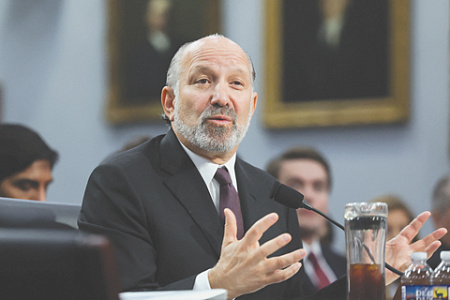
At the talks in London on June 9, China is represented by Vice Premier He Lifeng, a member of the Political Bureau of the CPC Central Committee, U.S. Treasury Secretary Scott Bessant, Commerce Secretary Howard Latnick, and U.S. trade negotiator Jamison Greer. Such a meeting became possible after a telephone conversation between Chinese President Xi Jinping and US President Donald Trump. The Chinese press writes that this is a dialogue of equal partners. But the fact that the meeting is taking place in Britain, an American ally, speaks to Beijing’s desire to reach a compromise.
Both sides describe the meeting as a consultation on trade and economic issues. This means that there are no military-political issues on the agenda, in particular, about Taiwan and the South China Sea. But because of them, as experts in the United States argue, a war between the two powers may break out.
Beijing considered it necessary to recall this danger, citing a precedent from ancient history. The Global Times newspaper, the voice of China abroad, writes that China and the United States should not fall into the trap of Thucydides. This refers to the rivalry between Athens and Sparta, which led to bloody clashes. Such a development of events should not be allowed in any case, one should not look with short-sighted eyes at what is happening in the world. We need to find a form of coexistence between the two civilizations. That’s how Beijing poses the question. Not between States, but between civilizations.
What does this mean? China tells its partner: do not interfere in our internal affairs, do not lecture us about the need to respect human rights, the principle of freedom of speech, and parliamentarism. China, whose civilization dates back more than 4 thousand years, has its own understanding of what law and order are, and how a decent person should behave in society.
On the other hand, as the publication emphasizes, the outcome of the talks between Xi and Trump was positive. They have raised hopes in the international community that Sino-American relations will become more constructive. Steps have been taken to establish mutual trust. And the conditions for this, it turns out, exist. All that is needed is for the leaders of the two countries themselves to steer the giant ship of Sino-American relations on the right course.
As is usually the case with texts in the Chinese press, some passages require decoding. For example, it talks about the need to eliminate shocks and other outrages. What does this mean? The United States is extremely inconsistent. As soon as a step is taken in the right direction, the United States takes some kind of action, even sabotage, in order to negate the positive achieved. Officials in America call China a “malicious competitor” and accuse Beijing of undermining the consensus reached during a meeting in Geneva in May. This is where the Taiwan issue comes up again. The United States, Global Times emphasizes, verbally assured that they recognize the principle of the existence of one China and will not approve Taiwan’s declaration of independence, but in fact they continue to supply Taipei with weapons. By doing so, the United States is destroying the climate of trust between the two powers. However, in general, Beijing expects that Xi’s conversation with Trump will have a positive impact on relations with the United States.
The American magazine The Foreign Policy also positively assessed the talks between Xi and Trump. He wrote that the tone of communication between the two presidents was mostly positive. The American side called it a very good phone conversation. And The New York Times writes that China tried to give Xi’s conversation with Trump the character of a dialogue between two strong leaders. At the same time, Xi urged his interlocutor to firmly hold the ship’s rudder in his hands and follow the right course. But this will be possible only if the head of the White House calms down the “hawks” who want to disrupt the truce.
However, the disagreements in the business field are very serious. Suffice it to say that the parties imposed duties on each other, which reached 100% until the beginning of May. Then we agreed to postpone these restrictions for 90 days. The conversation between the two presidents took place at a critical moment. The truce seemed to be collapsing. China has been reducing exports of rare earth metals. Because of this, the supply chains of American enterprises were disrupted. In response, the United States imposed restrictions on the sale of chip design software to China. Washington has also banned American companies from using chips from Chinese technology giant Huawei.
Whether the two largest economies in the world will be able to iron out their differences may become clear in the coming days.
